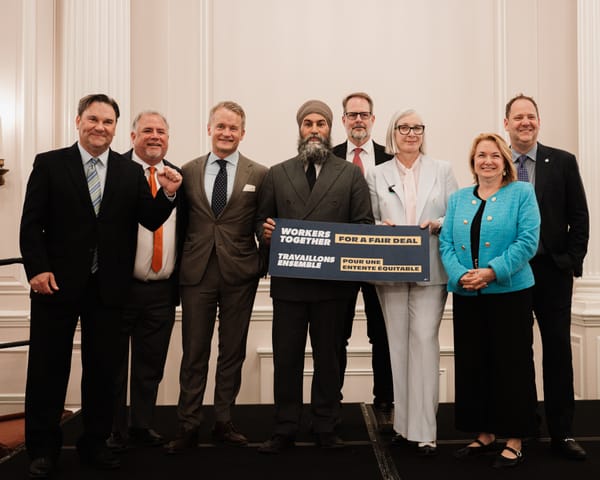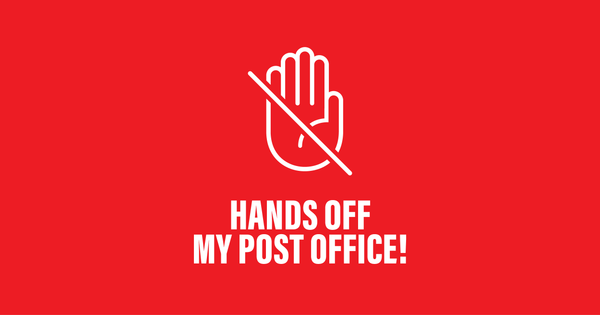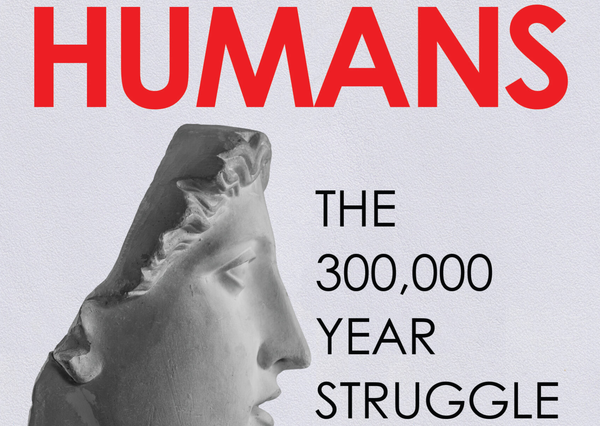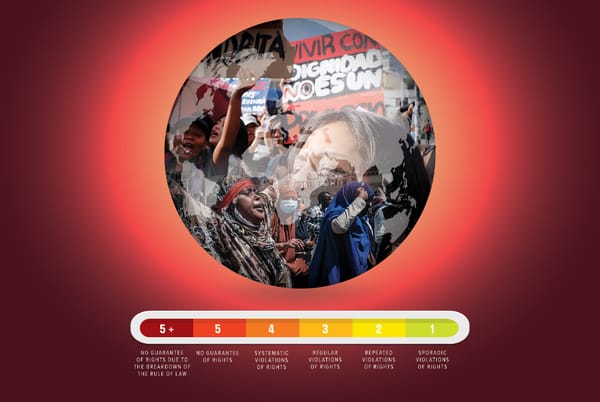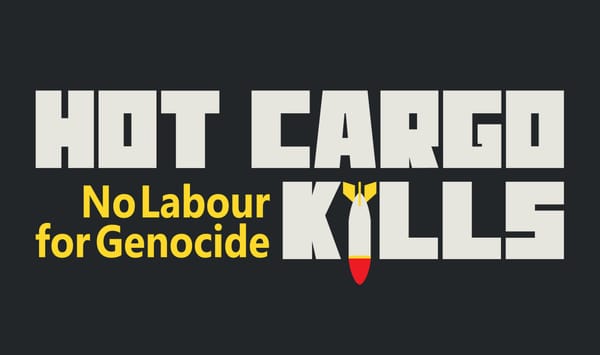
Last September, I wrote about workers voting to unionize at the Yorkdale shopping centre’s Indigo in Toronto. This was the latest victory in a series of successful organizing drives led by the United Food and Commercial Workers (UFCW) union at that retailer.
For this week’s newsletter, I sat down with Greta Whipple, a worker (and now member of UFCW 1006A) who played a leading role in the Yorkdale Indigo union campaign. We chatted about the process of organizing at Indigo and in retail more broadly, and about how young workers’ increased interest in unionization could be a sign of positive things to come in the labour movement.
Greta and her coworkers voted to ratify their first collective bargaining agreement shortly after we spoke. So, congratulations are also in order.
Adam King: What led you to Yorkdale’s Indigo, and then to decide you and your coworkers needed to unionize?
Greta Whipple: I started at Indigo after my second year of university, in the summer of 2016. Because of the intensity of my school schedule, I had no intention of staying on long-term. I kept returning to work during winter and summer breaks. Then I graduated and thought, “I already know this job. I’ll just stick around here until I can get where I want to be.”
Then, fast forward to 2021. My coworkers and I had seen that stores in Woodbridge and Square One in Mississauga had unionized, and we were thinking, “Should we do this?”
Initially, people were hesitant. There’s so much misinformation and stigma surrounding unions. Everyone felt jerked around with lay-offs and return-to-work protocols during different waves of the pandemic. On top of that, the employer gave no raises in 2020 or 2021. They of course blamed COVID, but then also announced record profits. Last, when we returned to work in May of 2021, a bunch of staff were essentially pressured to leave by management. I think that was the final straw.
AK: How did you get the organizing campaign started?
GW: We had an outraged meeting at a Pickle Barrel [laughs].
I work at Indigo’s Yorkdale location. Though not their flagship location, it’s a major store. It’s a top five revenue store for the company. A breadth and depth of knowledge required to do this job. It felt to many workers like so much was asked of them but so little was given in return — not just in terms of compensation but also when it came to respect from management.
One of the first things I did was reach out to workers at the Indigo Woodbridge store, which had unionized before us, and they answered questions and helped us get started.
It is a fairly young workforce at our store — many people are either post-secondary students or recent graduates. But the tenure of staff at our store is also unusually high for retail. I think our campaign benefited from this. Some people had been there for a while and had watched a decline in working conditions over the years.
The renewed interest in unions among young people, I think, really helped. It seemed like more people were in tune with the labour movement and the importance of unions, and so there was openness to the idea of organizing.
AK: It seems like a lot of the recent upsurge in organizing is among young people, many of whom are probably around your age, who took jobs that they perhaps thought were temporary. They find themselves at these jobs for extended periods of time in a less-than-ideal labour market and they are deciding to stay put and organize.
GW: I think so. And even if the jobs are “temporary,” that’s no excuse for putting up with low pay, poor working conditions and disrespect.
AK: Can you walk us through the process of organizing? How did you approach fellow workers? What challenges did you face, and how did you deal with any coworkers who were opposed to unionization?
GW: It was definitely a challenge. There were people who we thought would be pro-union who weren’t and vice versa.
We had a core group of about six or seven people. I knew for sure that they could be trusted and could approach other workers who I didn’t have as much of a direct relationship with. At Indigo, we are somewhat separated; people are in sales and in operations, with different work schedules. So we needed to reach all people across those “sectors.”
In our case, we put trust into the wrong person who ratted us out to management before we were public. It turned out alright. Once management catches wind that there’s an organizing campaign in progress, they will make a statement which often does some of the heavy lifting for you.
The employer’s email communication contained a lot of misinformation about unionizing. ‘A union will cost you a fortune in dues. Other stores didn’t receive any additional benefit.’ The usual stuff. We knew it was all false.
After that, we had workers approaching us wanting to be a part of the campaign. Once we countered management’s misinformation, people were angry they were being lied to and wanted to move forward with unionizing even more.
The company attempted to dissuade us from unionizing by lying to us. They were doing one-on-one “meetings” with people, showing copies of the union contract from Woodbridge but excluding pages to try to prove that unionizing didn’t win the workers anything. Very sneaky and underhanded stuff.
In response, we had folks from the other unionized stores talk to people about their experiences, which was very helpful. In any union campaign, if you can connect with unionized workers who can dispel employer talking points, that’s important.
I’m eternally grateful to the folks at Woodbridge and the other unionized stores. They blazed the trail ahead of us. We could then use their resources and contract to show what unionizing could do for us.
AK: At what stage did you reach out to UFCW? Tell us a bit about the mechanics of organizing with an established union.
GW: It happened very quickly. After reaching out to workers at other unionized stores, I was on the phone with a union representative and I electronically signed my union card that day. Once you sign that card, you are afforded certain legal protections from employer retaliation.
Similar to connecting to other unionized workers, it was really helpful to connect with union staff. The company was always trying to address each worker individually. It was all about isolating us. Having union support and knowledge of the process helped with that.
The employer knows that unions are “bad” for them so they do their utmost to stamp out the organizing drive. We had to work to counter that.
How fast we moved was a testament to how dissatisfied workers really were. The union said they had never seen a campaign move that quickly. It was certainly exhausting. But we were really well supported by UFCW and the other unionized stores.
AK: How many people work in your store, and how did you gauge support for unionizing during the campaign?
GW: Well, it’s a bit complicated and interesting. There’s a system we use for scheduling, which we could all see, so we used that to see all the workers and their schedules. I’m sure the company is now like, “Damn, we gave them too much information!”
What was tricky is that we lost a lot of staff — retail has a notoriously high turnover rate. So we were dealing with chronic understaffing and Indigo was looking to hire. But once they found out about the organizing campaign, they accelerated their hiring. It was no coincidence. They thought newer staff would be easier to bring to their anti-union side.
Their next mistake was that they let me train the new staff! Three of four new staff immediately signed union cards and then management figured it out and didn’t let me train new people.
Once we had the required number of signed cards and had submitted them to the Ontario labour board, that same day Indigo hired another bunch of staff. But luckily those votes became “contested” and isolated from the rest of the votes. We won by such a landslide that it didn’t end up mattering.
AK: Can you tell us what the period between submitting your union cards and voting in the election was like? In many cases, employers try to ramp up their anti-union campaign ahead of the vote, and in British Columbia, the government recently reintroduced “card check certification” so that workers simply submit the required number of signed cards and don’t have to vote at all.
GW: Having card check in Ontario would have made the process much less stressful. The company was scummy before the vote. As I said, they hired all these new staff.
Then, because you vote a week from when you submit your cards and voting is a 24-hour period, voting would have ended on a weekend. The labour board said that couldn’t happen; voting had to end on a Monday. That gave the employer a couple of extra days to do their anti-union song and dance.
Our rock-solid votes, which were around 60 per cent, we knew we had. On our social media, we organized a “telethon” to reach out to people we thought were “no” votes or “maybes.” We got people to call into the store and show support for the organizing drive. It can feel like you’re in a bubble, in some private battle between you and management. We wanted to show workers that they weren’t isolated, that they are part of a broader movement and that the public supports what we’re doing because they know how much unions have done.
Managers were rattled by this. They usually have allergic reactions to the phone ringing and don’t answer. But they were running around trying to field these calls and prevent workers from hearing the public support. It was pretty amazing.
AK: Retail was particularly hard hit by the COVID-19 pandemic. How would you assess the impact of the pandemic on the organizing drive?
GW: I honestly don’t think we would have unionized if it wasn’t for COVID-19. To us, it revealed the company’s true colours.
A major bone of contention was the lack of a firm mask mandate in the store initially. Anyone could enter the store maskless and claim a medical exemption. I’m sure some were true, but for the most part it seemed like many people simply didn’t care about the health and safety of staff.
The company talked a good game about health and safety, but actions spoke louder than words. To us, the company seemed to be sending a message that we were disposable and if we got sick it was on us.
The pandemic ended up being the push we needed to organize for greater say in the terms of our employment. Without the union, we were just being dictated to. We don’t settle for that in virtually any other relationship in life — not friends or family or your partner — so why would we tolerate it at work?
AK: Most workplaces are much like little dictatorships in a lot of ways.
GW: They really are.
AK: There seems to be a revival of interest in unions among young workers. How do you think your organizing is related to this and what do you think this says about the appetite for unionization, particularly among young workers?
GW: I think young workers are dealing with so much. We’re encouraged to go to school and we take on all this debt for the promise that it will pay off and be worth it down the road. But many are finding out it’s not.
The cost of housing is ridiculous. Inflation and the cost of living are now major issues. People don’t have any savings. It seems like everything is on fire and it’s dreadful. Social media has made a difference too. We were fortunate to be organizing at a time when it is so easy to connect and talk with workers who had done this before us across the country.
Young workers are fed up and are looking for ways to have influence over their lives. We’re at the mercy of other decision-makers — whether governments or employers — and they’re failing us. A lot of the UFCW union’s membership is made up of young people. They’re precariously employed and they want union protection. People want to stand up for themselves and don’t want to be dictated to at work.
AK: What advice do you have for workers — particularly other retail workers — who are interested in organizing a union?
GW: You have a right to have a say in your employment. Reach out to people in your life who are union members. Anybody who’s organized, or knows others who have, can testify to just how passionate and open most people are in the labour movement. Or reach out to an established union. I think most people are extremely open to talk about what they can do.
Companies don’t resist organizing campaigns so hard because they have your best interest at heart. They know unionization is “bad” for them because it costs them more money. They make it seem like organizing is this giant mountain you have to climb, and in some ways, it is. But it’s also one of the easiest mountains to climb because you do it collectively and you have support.



